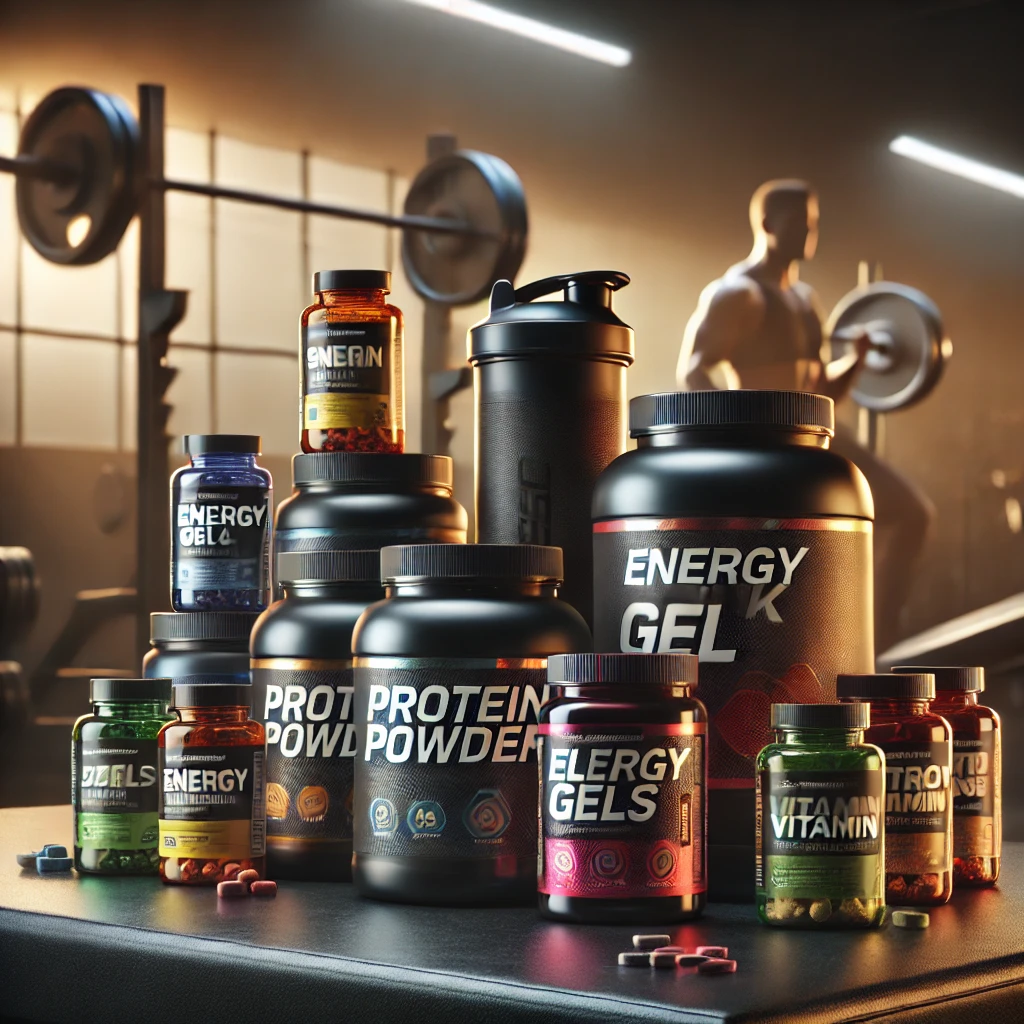Using Steroids at The Right Time
In the world of fitness and bodybuilding, the pursuit of physical excellence often tempts individuals to seek shortcuts or enhancements to accelerate their progress. Steroids, with their undeniable ability to increase muscle mass, strength, and performance, present an alluring option. However, the decision to use anabolic steroids should be treated as a last resort, pursued only when natural methods of progress have been fully explored and exhausted. This approach not only ensures a safer journey to fitness but also upholds the principles of discipline, effort, and long-term health.
Understanding the Appeal of Steroids
Steroids, scientifically known as anabolic-androgenic steroids (AAS), are synthetic variations of testosterone, the male sex hormone. They are commonly used to promote muscle growth and enhance physical performance. Their effects can be striking, enabling users to surpass natural physical limits. For athletes and bodybuilders, steroids might seem like a magic solution to plateaued progress, offering quick results in building muscle mass, reducing fat, and increasing strength.
Despite these apparent benefits, the risks associated with steroid use are significant and often outweigh the advantages. Physical side effects such as liver damage, cardiovascular issues, hormonal imbalances, and psychological impacts like aggression and depression are well-documented. Long-term misuse can lead to irreversible damage to the body and mind, raising ethical and health concerns.
The Case for Natural Progress
Natural bodybuilding and fitness emphasize achieving results through proper nutrition, training, rest, and consistency. This approach not only minimizes risks but also promotes a sustainable and healthy lifestyle. The human body is remarkably adaptable, and with the right strategies, individuals can achieve impressive results without resorting to steroids.

- Optimized Training: Many individuals fail to fully utilize the potential of scientifically backed training programs. By focusing on progressive overload, compound movements, and varied routines, significant muscle growth and strength gains can be achieved. Incorporating techniques like periodization ensures continuous progress.
- Balanced Nutrition: Nutrition is a cornerstone of natural progress. A diet rich in protein, healthy fats, and carbohydrates provides the necessary building blocks for muscle growth and recovery. Tracking macronutrient intake and ensuring sufficient caloric surplus or deficit, depending on goals, can yield transformative results.
- Adequate Recovery: Overtraining and lack of recovery can stunt progress. Sleep, hydration, and proper rest days allow the body to repair and grow stronger. Recovery is often an overlooked aspect of fitness but is essential for long-term success.
- Supplementation: Natural supplements such as protein powders, creatine, branched-chain amino acids (BCAAs), and multivitamins can support training and recovery without introducing synthetic hormones. These products, when used appropriately, enhance performance without the risks associated with steroids.
- Consistency and Patience: Fitness is a marathon, not a sprint. Many individuals underestimate the time and dedication required to achieve substantial results. Natural progress demands patience and resilience, qualities that also build mental strength and discipline.
Using Steroids at The Right Time
When Steroids Enter the Conversation
After years of dedicated training, precise nutrition, and optimized recovery, some individuals may feel they have reached their genetic potential—a point where further progress is either minimal or unattainable naturally. This is when the topic of steroids might surface. Even at this stage, the decision to use steroids should be made with extreme caution and informed guidance.
- Medical Supervision: Steroid use should only occur under the supervision of a qualified healthcare professional. Self-administration or reliance on unverified sources increases the risk of misuse and adverse effects.
- Education and Awareness: Understanding the science behind steroids, their effects on the body, and potential risks is crucial. Educated users are more likely to approach their usage responsibly, considering cycles, dosages, and the importance of post-cycle therapy.
- Ethical Considerations: For athletes, the use of steroids can raise ethical concerns, particularly in competitive sports where fairness is paramount. Steroid use often violates anti-doping rules, leading to penalties and reputational damage.
- Psychological Readiness: Users must assess their motivations for turning to steroids. Are they driven by a genuine desire to overcome a plateau, or are they succumbing to external pressures or unrealistic expectations? Honest self-reflection is critical.
- Long-Term Planning: Steroid use should never be viewed as a permanent solution. It should complement a foundation built on natural training and nutrition, not replace it. Users must plan for the eventual cessation of steroids and focus on maintaining their gains naturally.

Steroids as a Last Resort
Steroid use should always remain a last resort, not a shortcut to bypass hard work. The risks are substantial, and the rewards are often fleeting without a solid natural foundation. For most individuals, the potential for growth within natural limits far exceeds their expectations, and reaching this potential is a worthy goal in itself.
By focusing on natural methods first, individuals develop not only their physiques but also the discipline, knowledge, and appreciation for the process that underpins true fitness success. These qualities ensure that progress is sustainable and fulfilling, reducing reliance on external aids like steroids.
Conclusion: A Measured Approach to Fitness Excellence
The allure of steroids in the fitness world is undeniable, promising rapid results and seemingly boundless physical potential. However, the journey to true fitness and bodybuilding excellence lies in exploring and maximizing natural progress first. Steroids, with their inherent risks and ethical implications, should only be considered after every natural avenue has been pursued and under strict professional supervision.
Choosing the natural path cultivates patience, discipline, and resilience—traits that define not just physical strength but character. By embracing these principles, individuals ensure not only a healthier body but also a legacy of dedication and respect for the craft of fitness. In this light, steroids become not a necessity but a carefully weighed option, approached responsibly and with reverence for the natural process.
-
Basaria, S. (2010). Androgen abuse in athletes: Detection and consequences. Journal of Clinical Endocrinology & Metabolism, 95(4), 1533–1543.
(Discusses the effects and risks of anabolic steroids on health and performance.) -
Phillips, S. M., & Van Loon, L. J. C. (2011). Dietary protein for athletes: From requirements to optimum adaptation. Journal of Sports Sciences, 29(S1), S29–S38.
(Explores the role of protein and nutrition in muscle growth and recovery.) -
Shoenfeld, B. J., & Grgic, J. (2018). The mechanisms of hypertrophy: How does muscle grow? Strength and Conditioning Journal, 40(2), 107–117.
(Covers natural muscle-building methods like progressive overload and recovery.) -
Bird, S. P., Tarpenning, K. M., & Marino, F. E. (2005). Designing resistance training programs to enhance muscular fitness: A review of the acute program variables. Sports Medicine, 35(10), 841–851.
(Provides guidelines for optimizing training without steroids.) -
Thiblin, I., & Petersson, A. (2005). Pharmacological anabolic-androgenic steroids and their effects on aggressive behavior and personality traits. CNS Drugs, 19(7), 571–595.
(Discusses psychological and behavioral impacts of steroid use.) -
Kraemer, W. J., & Ratamess, N. A. (2004). Fundamentals of resistance training: Progression and exercise prescription. Medicine & Science in Sports & Exercise, 36(4), 674–688.
(Details training principles to maximize natural gains.) -
World Anti-Doping Agency (WADA). (2023). Prohibited substances and methods: Anabolic agents. Retrieved from https://www.wada-ama.org
(Highlights ethical and regulatory concerns surrounding steroid use.) -
Collins, D., & Dunne, E. (2018). Nutrition and supplementation for natural bodybuilding. Journal of Sports Nutrition and Exercise Metabolism, 27(1), 44–53.
(Covers the role of supplements like creatine and BCAAs in natural progress.) -
Helms, E. R., Aragon, A. A., & Fitschen, P. J. (2014). Evidence-based recommendations for natural bodybuilding contest preparation. Journal of the International Society of Sports Nutrition, 11(20).
(Provides strategies for achieving natural peak performance.) -
Pope, H. G., & Kanayama, G. (2012). Anabolic-androgenic steroids: Health risks and addiction. Current Psychiatry Reports, 14(5), 370–378.
(Explores addiction and long-term health risks of steroid misuse.)







